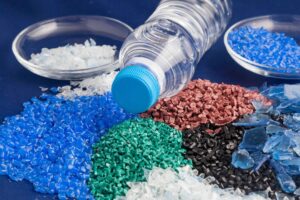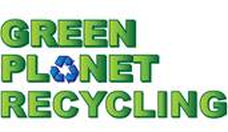Plastic is everywhere in our lives, from the cars we drive to the clothes we wear and even the food we eat. However, not all plastics are created equal. There are seven different types of plastics that you can find in Alberta.
CALL NOW for FREE QUOTE
Resin Code 1 – PET (polyethylene terephthalate): Carbonated soft drink bottles, water bottles, peanut butter containers, cooking oil bottles. It is 100% recyclable. PET (polyethylene terephthalate): Carbonated soft drink bottles, water bottles, peanut butter containers, cooking oil bottles. PET is 100% recyclable. It can be recycled into new bottles and other products. In addition to being used for the containers listed above it is also used in plastic bags and carpeting.
Resin Code 2 – HDPE (high-density polyethylene): Milk jugs, laundry and dish detergent bottles, shampoo and motor oil bottles, yogurt and margarine tubs. It is fully recyclable. Resin Code 2 – HDPE (high-density polyethylene): Milk jugs, laundry and dish detergent bottles, shampoo and motor oil bottles, yogurt and margarine tubs. It is fully recyclable. What is it? HDPE is a plastic resin can be used to make containers for foods, beverages, personal hygiene products and pharmaceuticals. It’s usually opaque white or brown in colour but also comes in clear plastic bottles such as bleach or detergent bottles.
Resin Code 3 – PVC (polyvinyl chloride): Pipes, cables are made of it. This plastic material is used to make pipes, cable insulation and other products that can be recycled into a variety of items such as decking, clothing and carpets.
The recycling process for this resin involves separating the various components of the plastic blend using a chemical solution called caustic soda (sodium hydroxide). This chemical softens the different types of plastics so they can be separated by density or by melting them down into flakes or granules which can then be ground up into pellets that are suitable for use in manufacturing new products again!
Resin Code 4 – LDPE (low-density polyethylene): Plastic shopping bags, dry cleaning bags and bread bags. It can be recycled into film plastic, garbage bags and panelling.
LDPE is a low-density polyethylene. It can be recycled into film plastic, garbage bags and panelling. Plastic shopping bags, dry cleaning bags and bread bags are all made out of LDPE resin code 4.
Resin Code 5 – PP (polypropylene): Yogurt containers and medicine bottles. PP is usually found in rope, carpet, stationery, lab equipment, and medicine bottles. It can be recycled into a variety of products including car battery cases, signal lights, and even plastic lumber.
Resin Code 6 – PS (polystyrene): Disposable plastic plates and cups, meat trays, egg cartons and carryout containers. It can be recycled into flower pots and plastic lumber.
Resin Code 7 – Miscellaneous or other plastics. This is a catch-all code that includes all plastics that do not fit into the above categories. Examples include three- to five-gallon water bottles, reusable plastic storage containers in your refrigerator or freezer or microwave oven food trays.
Resin Codes 3 through 7 are typically printed on the bottom of bottles and containers. If you can’t find any numbers stamped on your item, look for a recycling symbol with arrows pointing in different directions (sometimes called a “downstream arrow”) with one number inside it; this number represents what type of plastic makes up your product.
Hopefully, this has helped you understand what each resin code means and how it is best recycled. We hope that this has helped you on your journey to becoming more eco-friendly!

